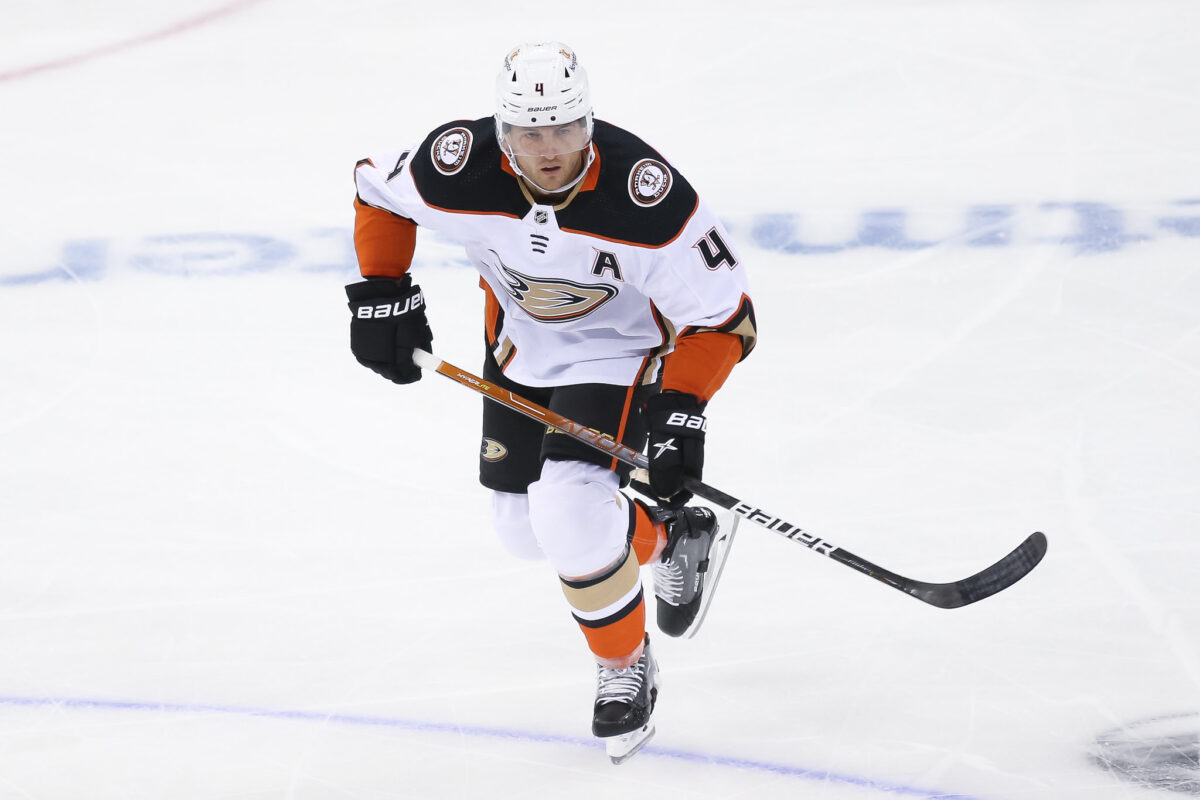The Vancouver Canucks sent the Anaheim Ducks to their seventh straight defeat last night (Nov. 28) in a closely contested 3-1 decision at Rogers Arena in Vancouver. The game was the first in a short stretch of the Ducks’ season that will reveal a lot about their resolve and ability to bounce back from difficult moments.
In a lot of ways, the Ducks delivered. They didn’t win, but they were sharp, competed far harder than they did against the Edmonton Oilers (Nov. 26), held the mighty Canucks to two non-empty net goals, and were right there at the end, which is exactly what fans were hoping for coming off of a bad loss. Let’s look at some takeaways.
Positive: Ducks Carried the Play for 40 Minutes
Something missing throughout the current losing streak is a comprehensive effort on offense. The top line comes into focus here, but the bottom-six lines, too, have been struggling.
Well, all four lines were active last night. Ryan Strome finally got on the board again when he scored his third of the season during an impressive, puck-moving power play. Frank Vatrano had eight shots on goal, Mason McTavish had three, and the top line, once again comprised of Alex Killorn, Adam Henrique, and Troy Terry (no Leo Carlsson), generated chances and seven shots between them. The bottom-six forwards, notably Sam Carrick, Ross Johnston, and Brock McGinn had a few solid shifts, too.
The collective effort forced the Canucks to play defense, which limited the effectiveness of their top guys, who wanted the puck in their hands to make plays. More of the same will be required in an upcoming stretch against offensively-minded teams.
Negative: There Was Little to Show For It
Naturally, not having more goals to show for such a strong stretch of play is disappointing. Give the Ducks credit for neutralizing Vancouver for the first two periods, but you need to bear down and finish. They had the Canucks, one of a small number of true Stanley Cup contenders, on the ropes and you need to put teams away when you have them in those positions. Ideally, you’d like to emerge from that dominant stretch up a goal or two. Unfortunately, the Ducks didn’t do that. They finished 40 minutes of action tied 1-1 despite outhitting, out-possessing, and outshooting (27-12) the Canucks. Thatcher Demko kept his team in the game and handled pretty much everything the Ducks threw at him. The Ducks hit many posts throughout the game, too, which bears mentioning.
Positive: Young Defense Steps Up and Plays Big
Nobody, especially defensively, played well in the Oilers loss. Last night was much better. I said the makeup of the unit could be much different, and it was. Radko Gudas missed the game due to injury, so Tristan Luneau drew back in, and Ilya Lybushkin didn’t play the last two periods after suffering a first-period injury.

That meant big minutes and a tall task for the remaining five blueliners: Cam Fowler, Luneau, Pavel Mintyukov, Jackson LaCombe, and Urho Vaakanainen. Fowler led the way with 29:56 in ice time, followed by LaCombe (23:22), Mintyukov (22:11), Vaakanainen (18:55), and Luneau (16:16). This group, in lockstep with the offense, slowed the vaunted Canucks’ attack down, limited the quality and quantity of their shots, and played with a control that was nonexistent a few days ago. Even in the third period, when the Canucks outshot the Ducks 15-4, they never really threatened to put the game out of reach. If not for an unfortunate lapse in judgment by John Gibson that left him distracted on the game-winning goal, the game may have unfolded differently.
Positive: Special Teams Play Was Excellent
The Ducks converted on one of their three power play chances to continue their recent run of success, and effectively killed off each Canucks power play (their empty net goal was on the power play). As we’ve said so often, winning the special teams battle is usually a good predictor of success. It didn’t pan out that way for the Ducks last night, but that doesn’t mean their special teams units didn’t play well.
The Ducks attacked early and often when they had their man advantage opportunities. In separate but nearly identical sequences, McTavish and Killorn were situated near the goal line and received passes from the half wall. They both attacked the crease and got shots on net. McTavish hit the crossbar after impressively lifting the puck from in tight. This is the kind of encouraging aggression the Ducks need to play with. Just get the puck on net, or in the vicinity of the goal crease, and good things can happen. Hopefully, it’s a sign of things to come.
No Standings Points Gained, But a Good Response Nonetheless
While the performance didn’t put an end to the losing streak, there was a lot to feel good about. The Ducks shouldn’t be super interested in consolation victories, but the Canucks lead the NHL in goals scored and goal differential by a wide margin. They are tied for second in standings points with 31, and boast some of the most offensively gifted players in the game today. And yet, the Ducks carried the play for the majority of the game, and made the Canucks earn every shot and inch of ice.
Related: Ducks’ Mounting Losing Streak Enters a Critical Period
While it never feels good to lose, a performance like that will beat a lot of teams, and should give them some confidence heading into their tilt with the Washington Capitals on Thursday (Nov. 30). Puck drop is 7 PM at Honda Center.
